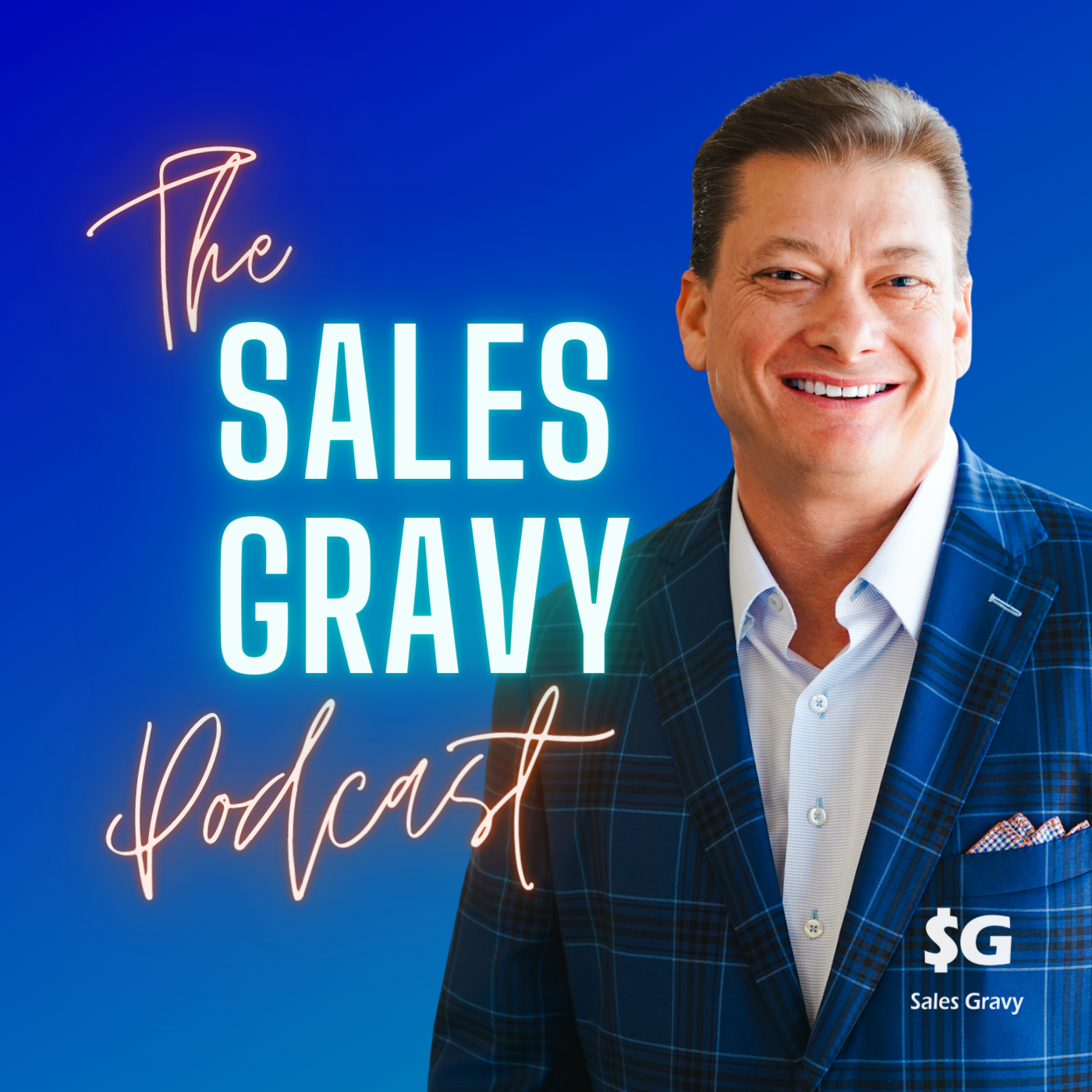

Sales Gravy: Jeb Blount
Jeb Blount
From the author of Fanatical Prospecting and the company that re-invented sales training, the Sales Gravy Podcast helps you win bigger, sell better, elevate your game, and make more money fast.
Episodes
Mentioned books

27 snips
Feb 18, 2025 • 17min
Why Consultative Sellers Will Survive AI (Ask Jeb)
Listeners dive into the transformative role of AI in sales, discovering how it streamlines tasks and enhances data management. Despite the rise of technology, the importance of human connection remains paramount in consultative selling. Key skills like curiosity, creativity, and emotional intelligence are essential for success in this evolving landscape. The impact of generational shifts on business strategies is also highlighted, stressing the need for sales professionals to adapt to the expectations of younger decision-makers.

5 snips
Feb 17, 2025 • 13min
The BTN Prospecting Method (Money Monday)
Discover a powerful technique that can transform your habits and enhance your sales skills! Learn about the BTN method, which emphasizes the importance of small, consistent actions. Embrace a mindset that values progress over perfection, and find practical tips for celebrating micro-wins. The power of persistence shines as speakers encourage making just one more call each day. Plus, understand the importance of forgiving yourself when you slip up—just don’t miss two days in a row! This approach could be a game-changer for your success!

15 snips
Feb 14, 2025 • 51min
Why Salespeople are Afraid to Ask for the Sale
Tony Morris, author of "Coffees for Closers" and a leading sales instructor, shares insights on the fear that paralyzes salespeople from asking for the sale. He dives into the roots of this fear, connecting it to personal experiences and emphasizing the importance of practice. Morris recounts his days selling sweets and door-to-door car washes, demonstrating how foundational experiences shape one’s sales mindset. The discussion also highlights how exceptional service and effective communication can transform client relationships and the value of resilience in sales.

5 snips
Feb 12, 2025 • 15min
How Do I Earn Respect When Selling to People Older Than Me? (Ask Jeb)
Navigating the world of sales as a young professional can be daunting, especially when dealing with older clients. It's often more about your internal dialogue than their perceptions. By reframing your mindset and focusing on how you can solve their problems, you can project authority. The power of asking insightful questions not only showcases your expertise but also builds rapport. Confidence comes from preparation and understanding that effective communication can break age barriers.

21 snips
Feb 10, 2025 • 9min
The Cold Truth About Cold Calling (Money Monday)
Discover the challenges faced by a group of reluctant young sales reps unsure about the relevance of cold calling. The host sheds light on the excuses that plague salespeople across generations while emphasizing the importance of proactive prospecting. Listeners learn about the relentless pursuit of success and the value of persistence in expanding networks and cultivating referrals. With insights into modern outreach methods, the discussion encourages a shift in mindset towards embracing a fanatical approach to sales.

Feb 6, 2025 • 32min
Make Your Website Work As Hard As Your Sales Team
Sam Dunning, a B2B marketing expert and podcaster, delivers insights on optimizing your website to act as a powerful sales tool. He introduces the Caveman Grunt Website Test to ensure clarity in messaging. Dunning emphasizes the importance of addressing customer pain points and advocates for continuous SEO efforts. He also shares how podcasts can boost lead generation and encourages experimentation in business growth. With practical strategies, listeners learn to turn their websites into dynamic sales machines.

7 snips
Feb 4, 2025 • 12min
How to Sell to My Customer When They Need to Sell to Their Customer First (Ask Jeb)
The discussion tackles the complexities of selling when your customer must first secure their own deals. Strategies for building strong relationships are highlighted, emphasizing the need to be a reliable partner during the bidding process. It also dives into the challenges of providing quotes and the balance between nurturing client relationships and generating sales. Understanding buyer motivations and engaging in meaningful conversations are key to enhancing success in this intricate selling landscape.

5 snips
Feb 2, 2025 • 10min
First Month Sales Goals Gut Check (Money Monday)
As we dive into February, it's time for a gut check on those New Year sales goals. Reflecting on progress is crucial, as motivation can dip after the initial motivation of January. Discipline is the key, reminding us that small slips in productivity can snowball into larger setbacks. Avoiding essential activities like prospecting can lead to excuses that hinder progress. Recommitting to our targets ensures we stay on track and continue pursuing our best sales year ever.

6 snips
Jan 30, 2025 • 37min
How to Embrace Conflict in Sales feat. Brian Parsley
In this episode, Brian Parsley, a motivational speaker and co-founder of The Constance Group, dives into the paradox of conflict in sales. He explains how embracing conflict can spur growth when approached with empathy. Parsley emphasizes the importance of self-awareness and combating negative self-talk to regain momentum. Mindfulness techniques are suggested for better communication, including tailoring styles to others and taking a pause before reacting. He also advocates for finding a coach to enhance one's sales strategies and perspectives.

12 snips
Jan 28, 2025 • 15min
How to Motivate Salespeople to Prospect Consistently (Ask Jeb)
Struggling to get your team to prospect consistently? This discussion offers practical tips to foster daily prospecting habits. Learn how daily conversations about prospecting can set clear expectations. Discover the benefits of scheduled video call blocks that provide social pressure and moral support for remote teams. The importance of maintaining motivation through structured prospector sprints and organized call blocks is also highlighted. Transform challenges into strategies for success in the world of remote sales!


